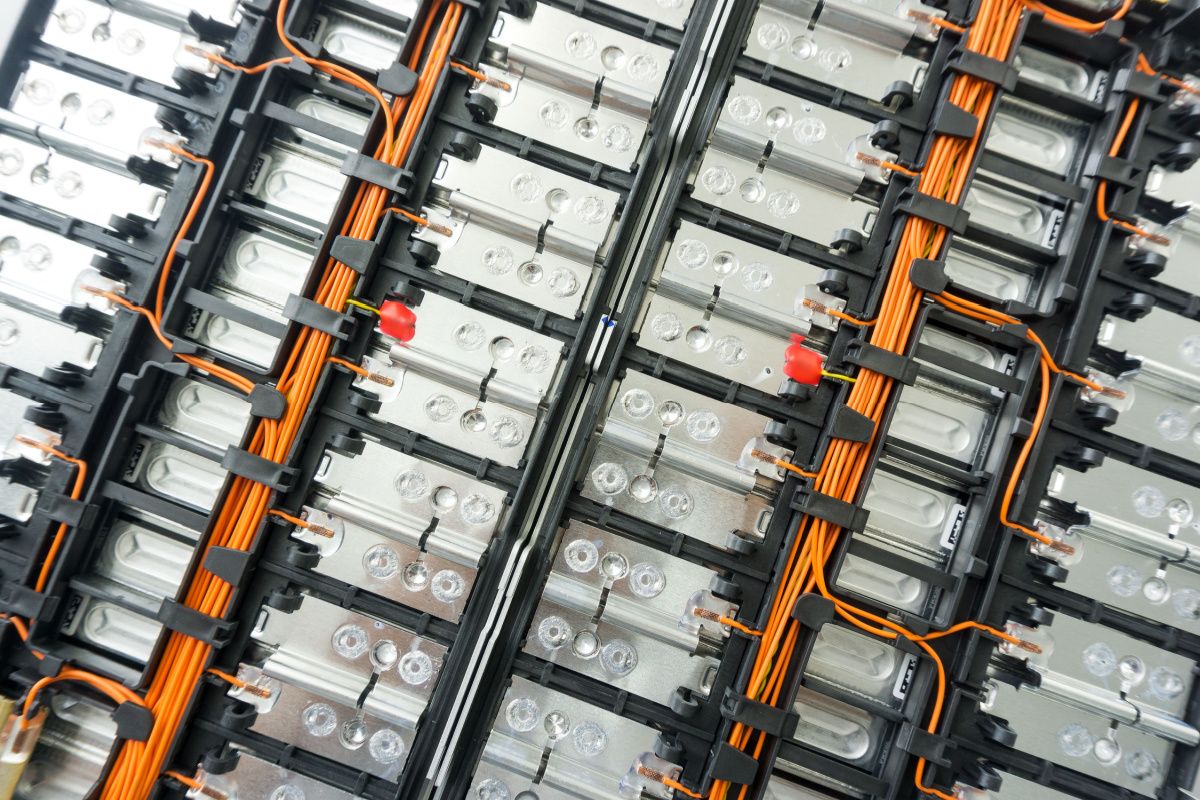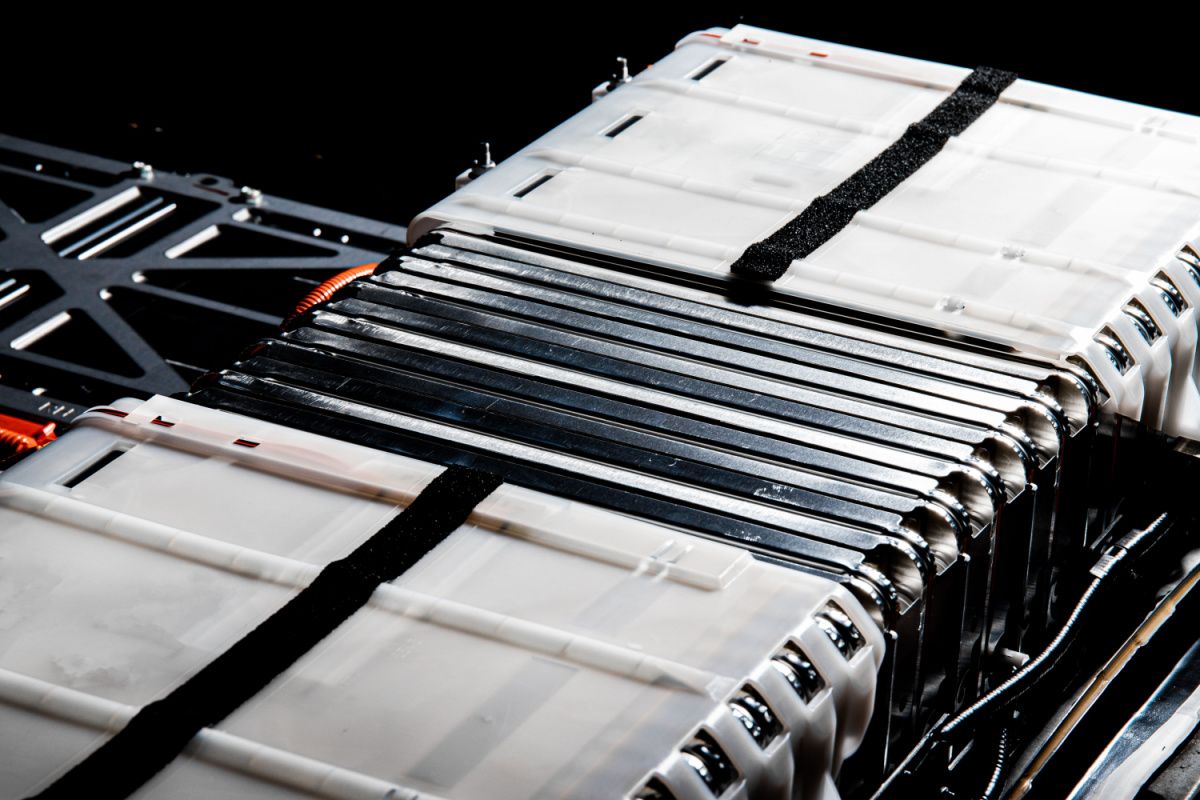This website uses cookies so that we can provide you with the best user experience possible. Cookie information is stored in your browser and performs functions such as recognising you when you return to our website and helping our team to understand which sections of the website you find most interesting and useful.
The batteries that power electric vehicles (EV) are both the provider of emission free travel and the hurdle in the way of their widespread adoption. Travel range, charge speed and manufacturing cost are all factors that are largely determined by the chosen battery solution in an EV; the battery alone represents 30% of the entire vehicle cost.
In order to meet the target of emission free vehicles by 2035, EVs require battery technology that maximises charge range whilst minimising manufacturing costs and ensuring safety. Fortunately, there are a selection of promising technologies that could be the solution to meeting these targets.
What are lithium-ion batteries?
Lithium-ion batteries, as their name suggests, utilise lithium ions that move between negative and positive cathodes when discharging and vice versa. These ions are what provide the features that have made lithium-ion batteries one of the most popular choices for modern electronics and electric vehicles; approximately 90% of global demand for lithium iron phosphate and lithium nickel manganese cobalt oxide come from mobility applications, with EVs as a majority.
Features
The aforementioned features of lithium-ion batteries are energy density and delivery. They are amongst the highest of any other available battery technology, exhibiting 100-265 wh/kg or 250-670 wh/L and a delivery of up to 3.6 volts. These figures enable the reliable delivery of energy for high-power applications such as EVs. Moreover, lithium-ion batteries have an extremely low self-discharge rate, leading to various EV manufacturers providing battery warranties of up to 8 years or 100,000 miles.
Challenges
Lithium-ion batteries do have their drawbacks, however. They require a specific safety circuit that stops the charging current when it is at full capacity. Otherwise, it would cause plating of the metallic lithium, leading it to potentially overheat, explode or cause a fire. Additionally, there is a major supply chain dependence on its raw materials; judging by the rapid growth and demand of the EV market, analysts are predicting lithium shortages as early as 2025.

What are sodium-ion batteries?
Sodium-ion batteries are a new form of EV battery technology that is making waves in the industry. This is due to the similarity of features when compared to lithium-ion whilst using sodium and sulphur as electrodes instead, making it considerably safer.
Features
Sodium-ion batteries exhibit approximately 100-150 wh/kg of energy density and 2-3 volts of delivery capacity, making them decent contenders to the dominating lithium-ion market. Moreover, the use of far more abundant materials makes the cost of these batteries up to 20% less whilst simultaneously easing pressure on the strained lithium supply chain.
Challenges
Even with the benefits of sodium-ion batteries, they seem to be (currently) applicable for short-range EV applications, or at least shorter than their lithium counterparts. Sodium-ion batteries are larger than lithium due to the weight of sodium, and offer a lifespan that is approximately three times less than their counterpart. This paired with their limited energy density leaves lithium currently as the more attractive choice when it comes to pushing the limits of EV range and longevity.

What are solid-state batteries?
Solid-state batteries represent the cutting edge of energy storage technology. These batteries use solid electrolyte as opposed to the liquid solution used by almost every other battery design. Solid electrolytes are created using polymers or ceramics, and exhibit a range of benefits and improvements on the widely used lithium-ion batteries.
Features
The ionic conductivity and mechanical properties of solid-state batteries produce incredible energy density, which is currently tested in the range of 280-410 wh/kg. They are also faster to charge, safer, and weigh less (due to the loss of liquid electrolyte) when compared to their lithium counterparts. All of these factors work in unison to make them the perfect EV battery solution; so much so that Toyota and BMW are investing billions in development.
Challenges
The Unfortunate reality with solid-state batteries is that the technology is still a distance from the production stage. Most are still in the testing phase, with engineers still trying to solve various issues such as material stability and designing a solid electrolyte that has electrodes evenly interfaced across their entire surface. This places the promising technology of solid-state batteries a ways away as an applicable EV battery solution.
What does the future hold for EV battery technology?
The dominance of lithium-ion batteries will likely continue into the near future. The energy density and delivery properties are unmatched by current technologies, which are both vital in pushing the limits of EV technology. That said, sodium-ion batteries represent an affordable alternative without a major loss to performance, making it a suitable choice for specialised applications such as city-based public transport. Moreover, some engineers are proposing sodium-ion EV ranges that can compete with that of lithium-ion based designs in the coming years.
The real advancement in battery technology to keep an eye on is solid-state batteries. They represent a significant jump forward for a range of factors; energy delivery/density, safety, manufacturing speed, and cost. But as it is now, these improvements are predicted to be a decade away from commercial production, leaving lithium-ion as the dominant force for the upcoming years.
Be up-to-date on EV technology with Dalroad
EV batteries are the driver in determining how efficient and far an EV can travel, as well as a significant portion of their overall cost. In turn, these factors often determine whether consumers make the switch from combustion to electric, demonstrating the importance of battery technology. With the advancement of lithium-ion, sodium-ion and solid state technologies, the next decade could hold promising results for the EV industry.
To stay up-to-date with EV technology, design and industries, Dalroad’s team of independent engineers provides advice and guidance on all areas from charging infrastructure to battery solutions. Get in touch with our specialists today to discuss your project and ensure it contains the latest technology.

